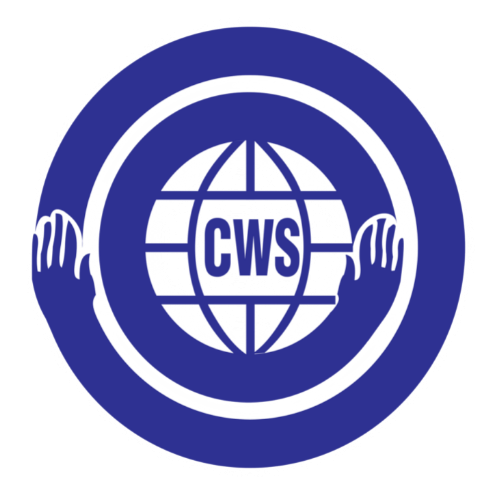Human Dignity
Under this theme, our programmatic interventions addressed issues related to violence against women, dalit atrocities, Child rights. The activities undertaken under this theme are awareness generation, mobilisation, collectivisation and facilitation of target group’s access to mainstream institutional processes.

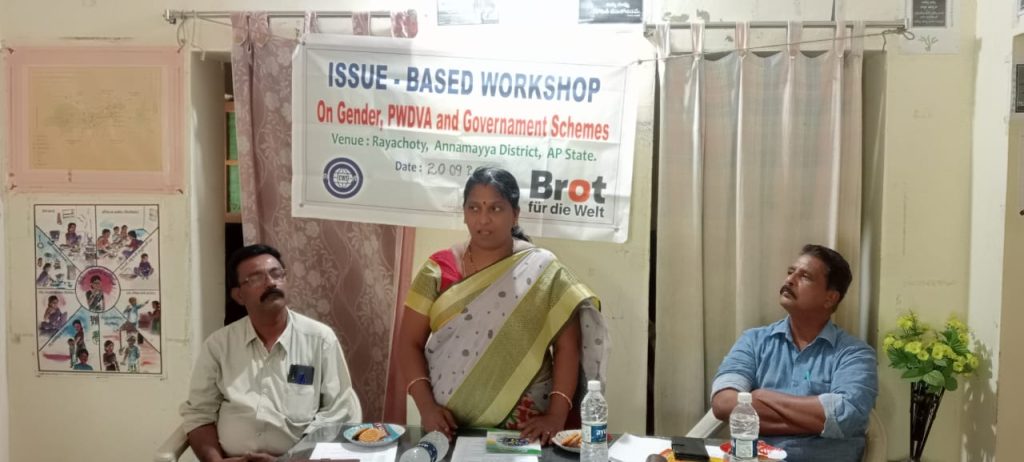
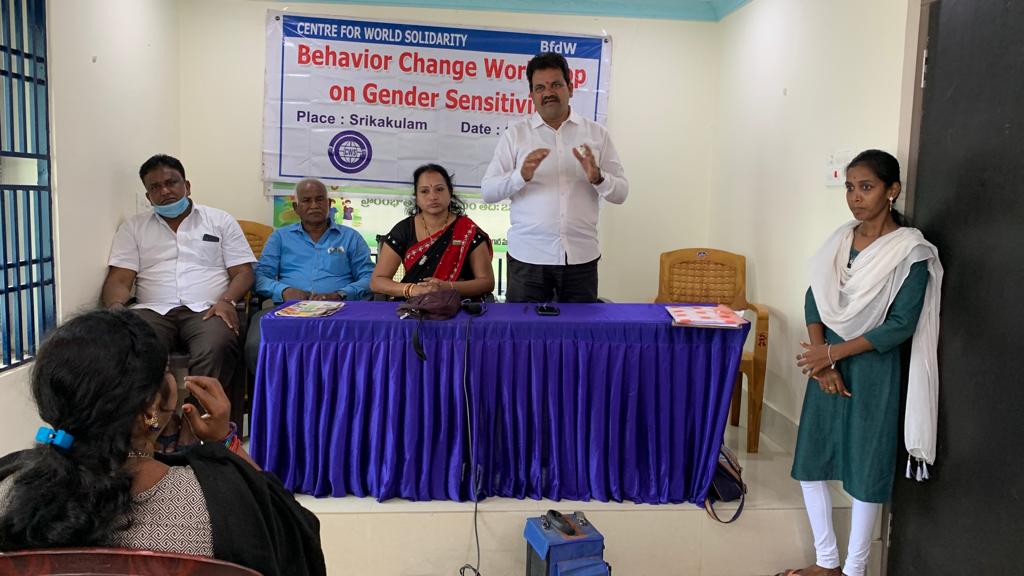
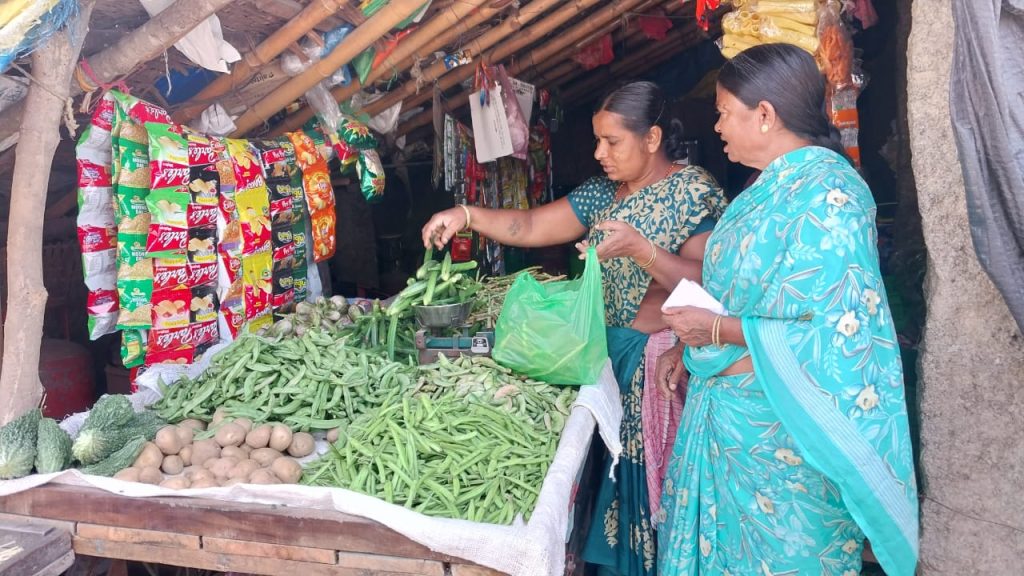

Empowerment of women, Dalits and adivasis
CWS, over the years, has been involved in empowering women to fight for their rights, raising voice against atrocities on women, providing relief, rehabilitation and counselling to women survivors and intervening for the effective implementation of enabling legislations such as the Protection of Women from Domestic Violence Act, Prohibition of Dowry Act, Immoral Trafficking Act and Witch-Hunting Act. The objective is to reduce the cases of violence and discrimination against women, increase knowledge and awareness of vulnerable women about human rights and legal rights and improve livelihood opportunities. Women facing domestic violence are being provided handholding support in terms of counseling, legal options, and in some cases livelihood support as well.
CWS facilitated adolescent girls to form themselves in to changemaker groups. These girls have become aware of Prevention of Child Marriages Act, prevention of sexual abuse (POCSO Act) and their right to speak out about it with dignity which brought about attitudinal change among girls. These change makers are taking initiatives to stop child marriages, ensure re-enrolment of drop out girl child in to schools, improve nutritional intake during menstruation and maintain hygiene. CWS provided a platform for Dalits to access justice and entitlements and to prevent atrocities against Dalit.
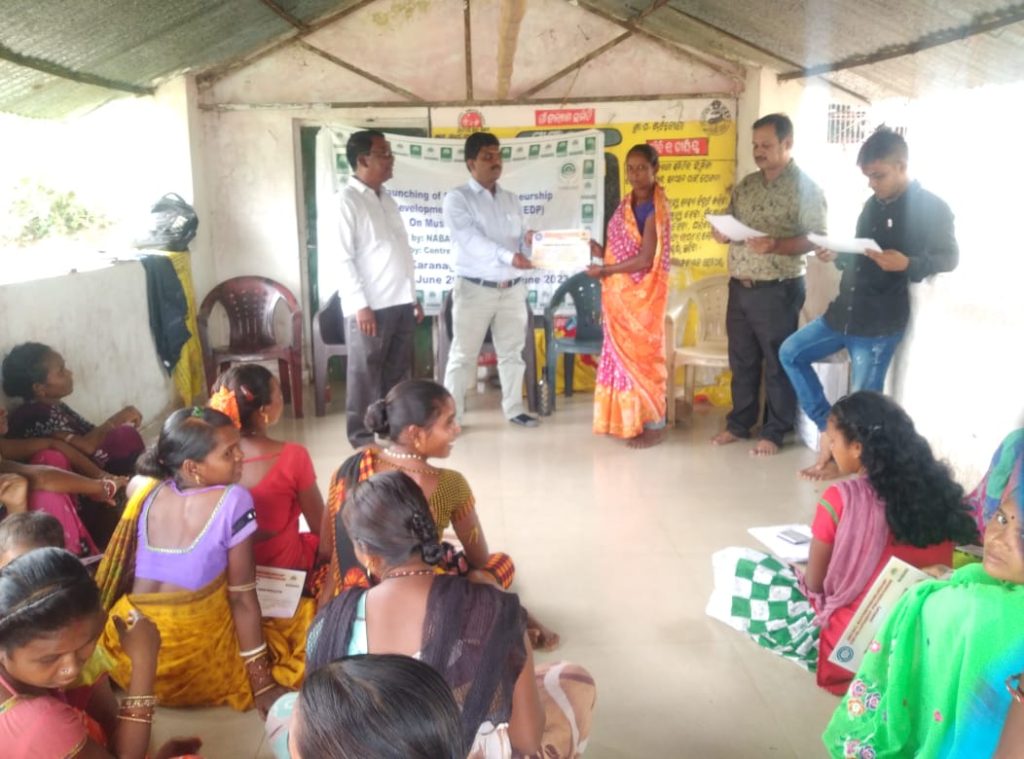


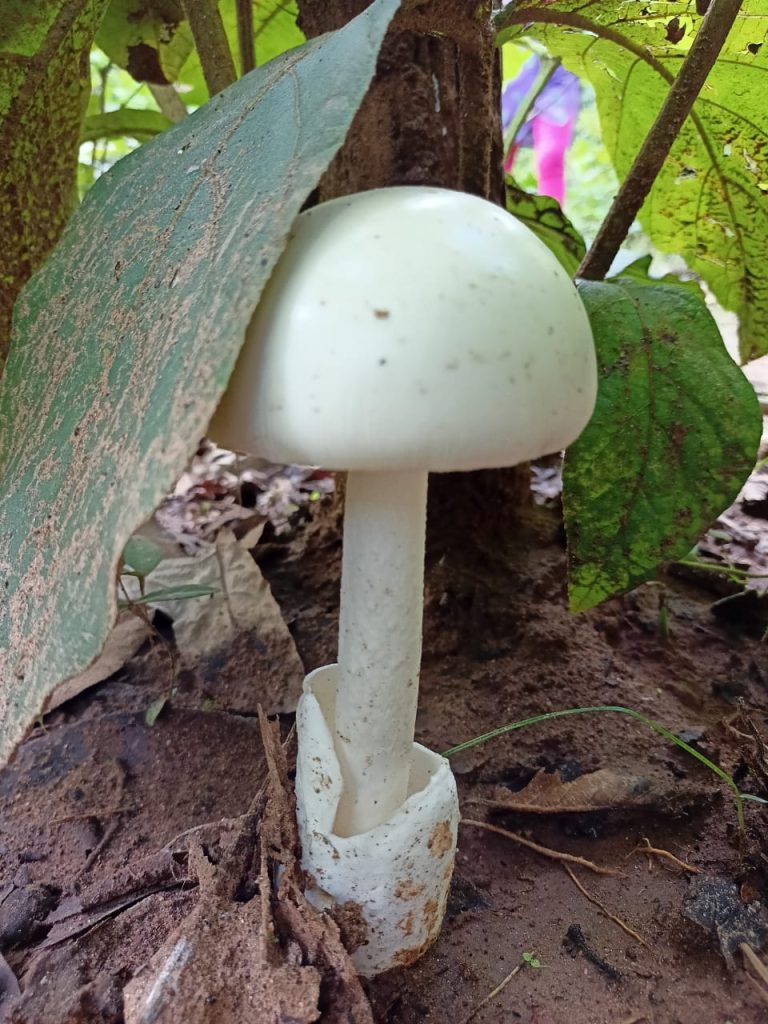
Skill development of women
CWS provides vocational skills training and micro-grants to women entrepreneurs for producing diverse products, e.g. Mushroom cultivation, food products (Puffed rice, hand pounded rice), making products from locally available natural resources (leaf plate, broom, ropes and other handicrafts).
In Jharkhand, 52 tribal women from Pungora, Tamukpal and Chakdoha villages in Ghatshila block of East Singhbhum learned to cultivate oyster mushroom. In totality 450 beds were made and total 725 kg were produced. They also learned value addition such as pickle making, drying and making mushroom powder.
Kharang is a natural grass locally available. It was used mainly to make brooms which did not fetch good price. These groups were trained on making table mat, coaster, trivet and other utility items. The trainers from NIFT Kolkata and Viswa Bharati Univeristy Art Department imparted the trainings.
Saboi is a natural fiber used only to make ropes manually. We have arranged skill upgradation training to make different utility items like bags, purse, door mat, basket etc. In order to reduce drudgery, IIT Kharagpur developed a rope making machine which has been provided to the women.
Initially women of Pungora village were making leaf plate manually and for own use. This village has abundance of Saal leaf at nearby forest area. To convert their skill into economic generation activity, the women were provided with Leaf plate making machine as well as marketing support to sell their produce.
The women of Thamukhpal village have less land-holding. Most of the women work as a maid. To provide them second livelihood option CWS have supported Muri-making machine to enhance their income and for sustainable livelihood option.
The women of Raghunathpur village were mostly housewife are engaged only in paddy harvesting with their families and sell to middlemen. To enhance their income in their village premises, CWS set up a Hand-pounding machine developed by Indian Institute of Technology (IIT) Kharagpur to process the paddy. Rice from hand pounding machine is nutritionally beneficial and has market value. The women groups has been linked with the Farmers Producer Organization (FPO) sponsored shops, namely, SARJOM .




